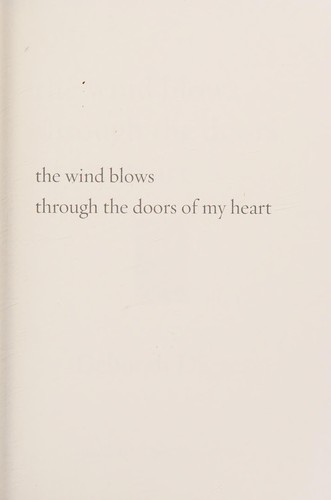I liked the journey log that explains where these haikus can from. Also seeing the Japanese under the English.
User Profile
Reader / Writer / Book lover
This link opens in a pop-up window
DaveNash3's books
To Read (View all 16)
User Activity
RSS feed Back
DaveNash3 rated Sweat the Technique: 5 stars
DaveNash3 reviewed The essential Bashō by Bashō Matsuo
DaveNash3 reviewed Unpacking the boxes by Donald Hall
Review of 'Unpacking the boxes' on 'Storygraph'
4 stars
The coffee with Robert Graves and Grief House chapters were the best. There’s a gap between them and in some other sections. When the chronology jumps it moves too fast it risks losing the reader, but when it’s focused it’s very good. I’ve read and heard a lot of his stuff so I enjoyed reading about his formation and life. I’m glad the section about him and his second wife is largely removed - another book for another time.
DaveNash3 reviewed The back chamber by Donald Hall
DaveNash3 rated Donald Hall Prose and Poetry: 4 stars
DaveNash3 rated Aimless Love: 4 stars
DaveNash3 rated Ethan Frome: 3 stars

Ethan Frome by Edith Wharton
Edith Wharton wrote Ethan Frome as a frame story — meaning that the prologue and epilogue constitute a "frame" around …
DaveNash3 rated Forest Dark: 5 stars
DaveNash3 reviewed Alive at the End of the World by Saeed Jones
Review of 'Alive at the End of the World' on 'Storygraph'
4 stars
School board meeting, black ice and a song for the status quo where some of my favorites.
Liked them all.
DaveNash3 reviewed All the Flowers Kneeling by Paul Tran
Review of 'All the Flowers Kneeling' on 'Storygraph'
3 stars
Started strong really moving but then got repetitive.
DaveNash3 reviewed Creation by Gore Vidal
DaveNash3 reviewed Tell Us When to Go by Emil DeAndreis
Review of 'Tell Us When to Go' on 'Storygraph'
5 stars
In this can’t put down novel, the reader finds that San Francisco can birth an underground hip-hop movement encapsulated by the title song and give rise to the prosaic navel-gazing startup world where execs arrange for Cake (the band) to play at their birthday party. However, coexistence is a different matter from creation. How can a city, let alone a friendship, maintain itself while it contains opposing value systems?
My full review here:
https://www.fivesouth.net/post/review-it-s-not-me-it-s-us-by-david-nash
Review of 'The wind blows through the doors of my heart' on 'Storygraph'
5 stars
I first heard the titular poem on the New Yorker: Poetry podcast earlier this year and was mesmerized.
The house that goes dancing, thank you for the poison apple, to love you, the coat, red woolen cape, and write a book a year were my other favorites.
These poems are so lyrical, clear and abundant with imagery.
Several were previously published in the New Yorker, Kenyon Review and a couple other literary magazines. It’s nice to have them all in one place where they can be savored.
The last poem haunts given the author’s end.
DaveNash3 reviewed The King Must Die by Mary Renault
Review of 'The King Must Die' on 'Storygraph'
4 stars
I was supposed to read this before I stated 7th grade. Wild. The first fifth in Trozien is not as eventful as the three middle fifths. I thought the last fifth limped.
As a 7th grader upfront there’s a lot more openness about sex, but when it moves to Crete this becomes a morality play. Also reinforces the notion that men can sleep with who ever but girls must be chaste at least towards men. Crete is ready to fall and their lives are wasted because they don’t fervently believe in the gods like Thesesus.
Besides tipping the scales in favor of organized religion it also romanticizes noble leadership. I think these themes are at odds with our times. Like this is how the patriarchy was established. Eleusis and other places worship Dia and women lead. Theseus changes that.
I thought the narrative was mediocre, it’s like reading Tolkien. Having …
I was supposed to read this before I stated 7th grade. Wild. The first fifth in Trozien is not as eventful as the three middle fifths. I thought the last fifth limped.
As a 7th grader upfront there’s a lot more openness about sex, but when it moves to Crete this becomes a morality play. Also reinforces the notion that men can sleep with who ever but girls must be chaste at least towards men. Crete is ready to fall and their lives are wasted because they don’t fervently believe in the gods like Thesesus.
Besides tipping the scales in favor of organized religion it also romanticizes noble leadership. I think these themes are at odds with our times. Like this is how the patriarchy was established. Eleusis and other places worship Dia and women lead. Theseus changes that.
I thought the narrative was mediocre, it’s like reading Tolkien. Having first person first hand takes away the threat of death, which is almost constant, from actually happening.
There’s a certain brand of Christianity that explains all the miracles as misinterpreted or exaggerated real world events like earthquakes or people who look dead but aren’t. So doing that with this legend seems less impressive.
The middle part is most interesting. I should have read this before 7th grade, but better late than never.














